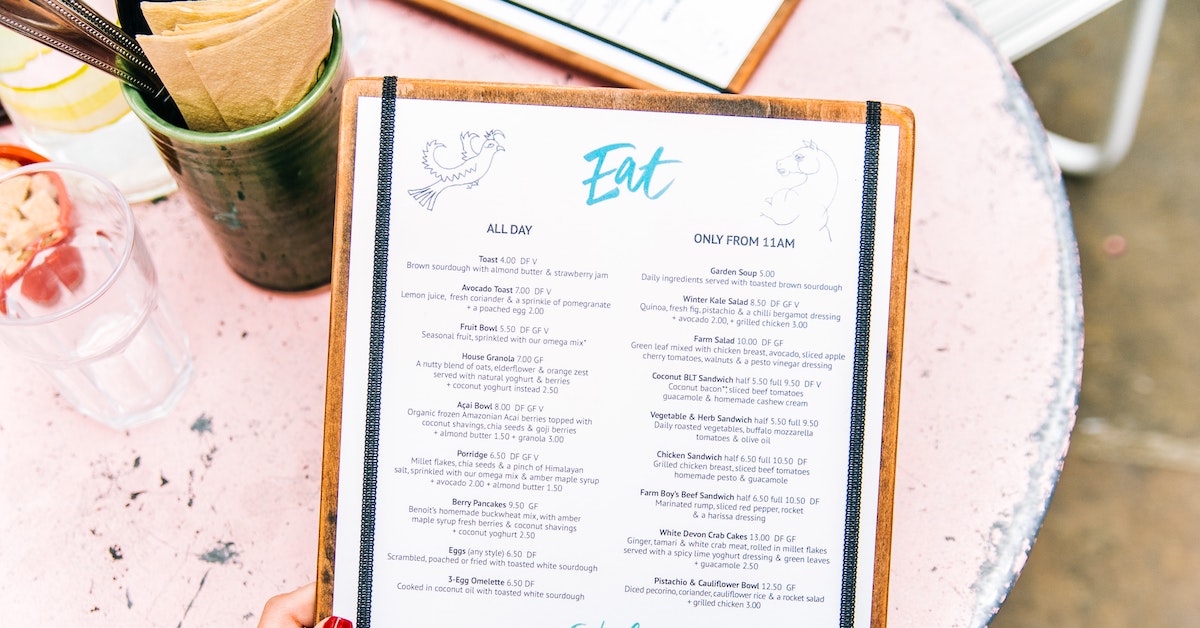
Update: want to learn everything you need to know about menu engineering? Then read out ultimate guide to menu design.
So you have dreams of opening a restaurant; showcasing your creativity and culinary skills while making your guests’ mouth water. One of the pillars of your restaurant’s success is your menu: not only its design, but the meal selection, too. Having a well-balanced menu strategy is one of the keys to establishing loyal customers and driving revenue long-term. Before thinking about design and aesthetics, it’s important to map out the content of your menu with a menu matrix.
What is a menu matrix?
A menu matrix is an instant visual aid that you can use to map out where each of your menu items fall in terms of sales volume and gross income. It’s a phenomenal tool to help you understand what your restaurant is offering and strategically create menu categories.

How do I create a menu matrix?
If you’re intimidated by the word matrix, don’t worry. This isn’t a programmed world that keeps us passive while robots farm humans like batteries. The first step to creating a menu matrix is plotting your current menu items on an X and Y axis based on their popularity and profitability. Menu engineers (that’s you!) place all menu items into the following four categories:
- Plow-Horses/Cash Cows: Low profit, highly popular items that customers don’t need to be reminded about.
- Stars:High profit, highly popular items that should definitely be prominently featured on your menu.
- Dogs/Duds:Low profit, low popularity items. Contrary to your instincts, these items don’t always need to be cut from the menu. Sometimes a little rework (either to its price or its ingredients) is all you need to turn it into a Star! Ask customers for their feedback; it’s an invaluable resource you should definitely exploit and everyone loves feeling heard.
- Puzzles:High profit, low popularity items. These items might benefit from renaming, repackaging, or being heavily emphasized on the menu and by your waiting staff to drive a higher volume of purchases.
When this exercise is complete, you should be left with a chart that looks something like this:

Now that you have a strategic overview of everything your restaurant offers, it’s time to dive into the psychology of choice.
The burden of choice
Believe it or not, too many options isn’t a good thing. FOMO (fear of missing out) is real, and restaurants need to keep that in consideration when building their menu. Customers of all demographics have an ideal number of menu items. Anything less than the ideal and they feel there’s not enough choice; anything more and they have difficulty making a decision and feeling satisfied with the decision they make.
A study out of Bournemouth University found that for fast-food and quick service restaurants, the sweet spot was six items per menu category (starters, fish, chicken, steaks and burgers, grills and classic meat dishes, pasta, vegetarian, and desserts). For fine-dining restaurants, seven starters and desserts, with 10 main courses was the ideal menu strategy.
Having a strategic overview of every item your restaurant offers, paired with an awareness of how customers feel about the quality and amount of meals to choose from, is critical for making informed decisions. Performing an audit of your menu using a menu matrix, as well as understanding how the volume of selection can positively or negatively affect your bottom-line, can set you up for long-term success. These relatively simple exercises can not only save you money on ingredients but help create memorable, positive customer experiences that truly let your dishes shine!
Create a seamless dining experience for your customers
See why Lightspeed restaurant management software is a fit for you

News you care about. Tips you can use.
Everything your business needs to grow, delivered straight to your inbox.






